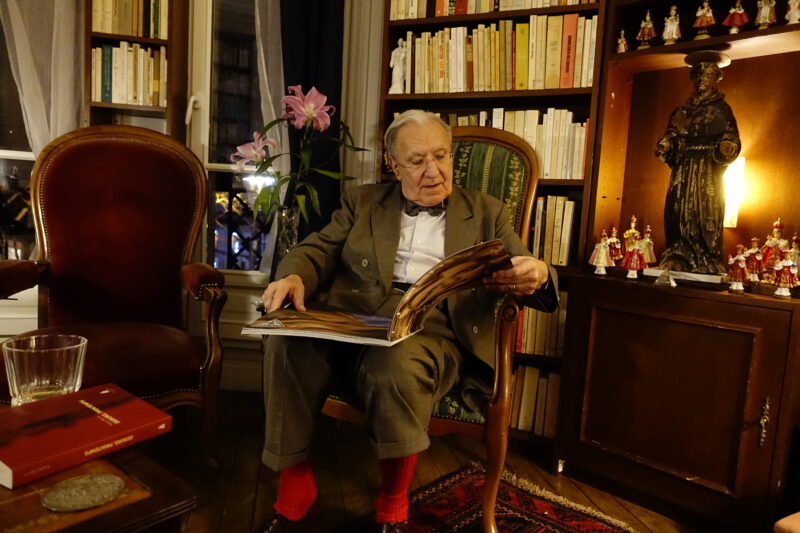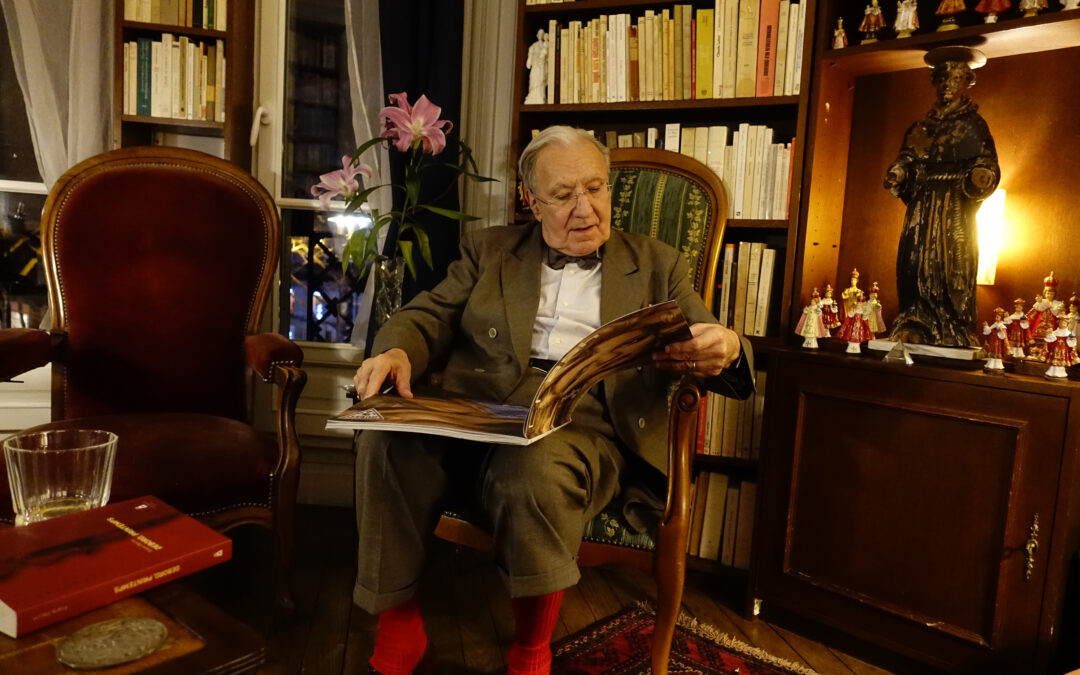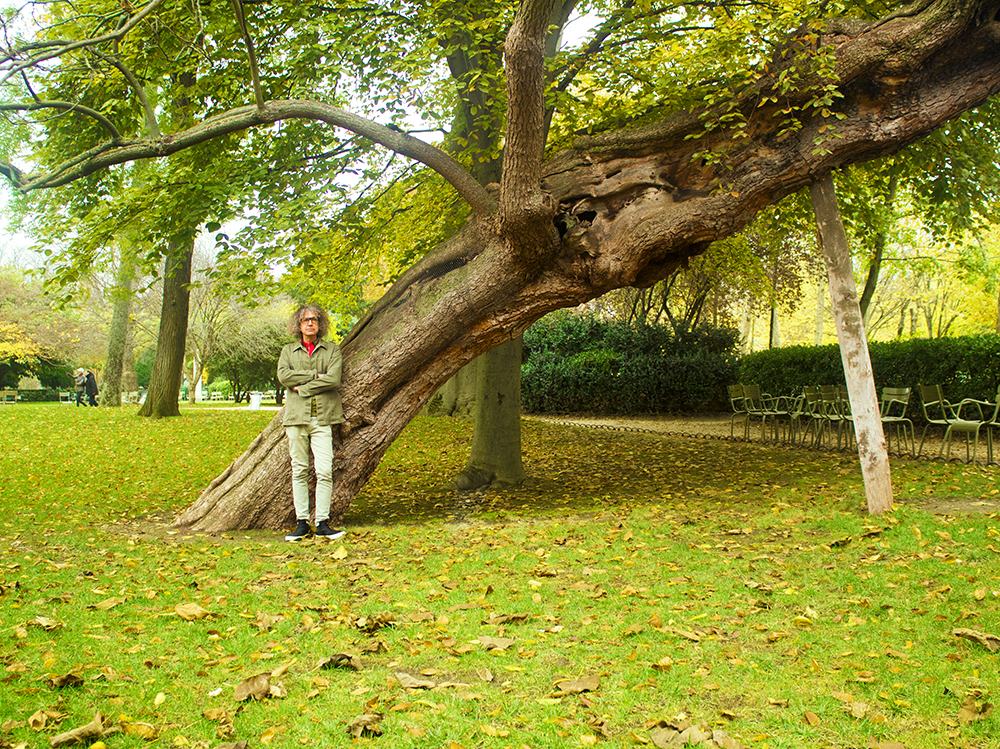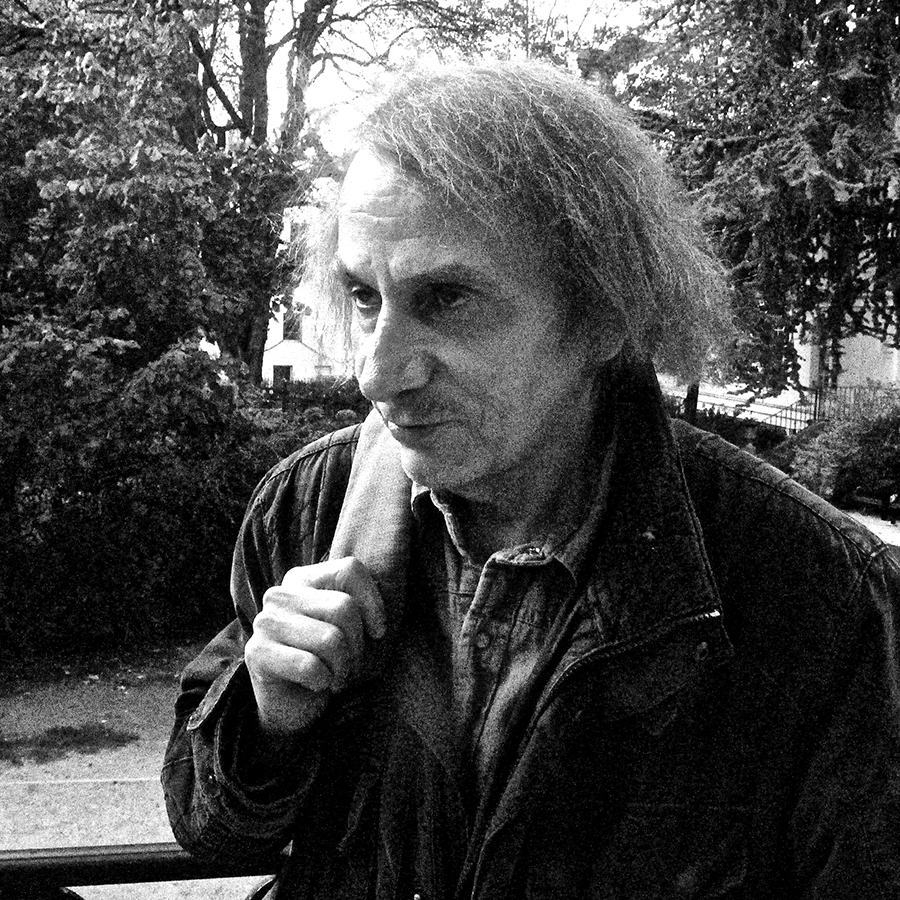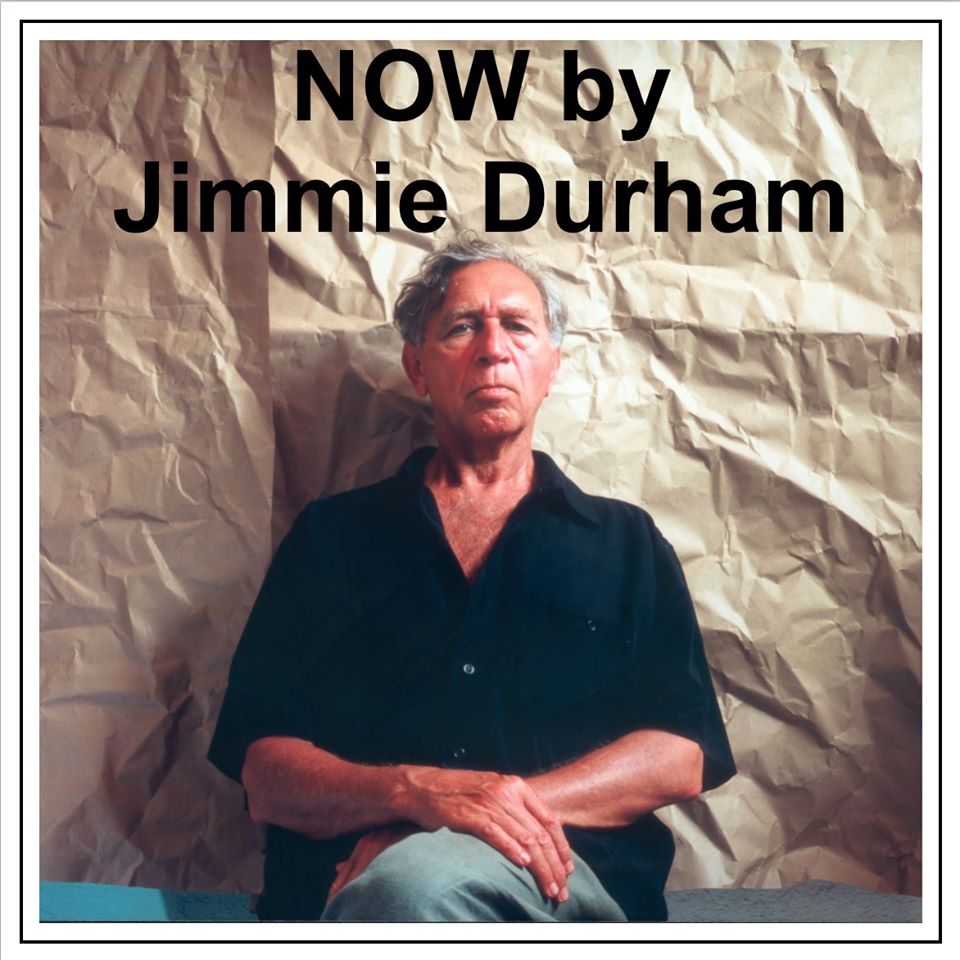
A MEETING WITH MICHEL MAFFESOLI FOR CRASH 99
By Armelle Leturcq & Frank Perrin
Michel Maffesoli, a leading thinker, successfully freed himself from the shackles of an academic career to tackle the major contemporary issues with complete freedom of speech. In this interview, he talks about our contemporary epoch, believing that we are situated between two eras following the end of modernity and the Enlightenment. In this way,
we are stammering towards the society that is currently being born. During this intermediate period, political discourse
is losing its value, but we can already sense the new uprisings and insurrections of the new generation, as it seems to advance at its own pace through a salutary notion of carpe diem…
ARMELLE LETURCQ
WE CAME TO SEE YOU TO GET YOUR THOUGHTS AND PERSPECTIVE ON THE CONTEMPORARY EPOCH! AND WE WANTED TO START BY MENTIONING LE TEMPS DES PEURS [THE TIME OF FEARS] AND L’ÈRE DES SOULÈVE- MENTS [THE ERA OF UPRISINGS] TO ASK HOW YOU GOT THE IDEA FOR THESE BOOKS.
MICHEL MAFFESOLI Those are two pamphlets. But you mentioned one of my favorite words, “epoch”. I adore Greek and everything that is a bit out- dated… In Greek, “epoke” is a “parenthesis”, and from my point of view, we are in the process of closing the modern parenthesis. It began with the 17th century and stretches at least through the first half of the 20th century. An epoch is about three to four centuries. Between two epochs, there are periods that are somewhat like twi- lights. From my perspective, this is what we are currently living through. It began in the 1950s, so the years around Lettrism, design and architec- tural postmodernism. It will last a few decades. We are still in this twilight period.
My hypothesis is that during these periods, we still have a sense of the values that are no lon- ger dominant, even as we are stammering to- wards a society that is yet to be born. We are un- able to establish a new system. The philosopher Jean-François Lyotard notably demonstrated that the postmodern condition is marked heavily by the end of standard grand narratives (Marxism, Freudianism, functionalism).
From this perspective, there is a kind of “scrambling” that takes place. Things are ram- pantly teeming during these intermediary peri- ods. For me, this is essentially what is happening now: an elite in distress (those who have the power of speech and action, political leaders and experts of every type). These elites continue to put forth an outmoded discourse, a narrative (as we say nowadays) that was based on the 17th cen- tury but no longer has any meaning. But the problem is that these elites are still here. Astrophysicists say that light from a star
continues shining long after its death… But what’s at stake today are these discourses that have lost their meaning. What we call incanta- tions: “republican values”, “democracy”, “social contract”, “freedom”. For me, all that is finished. Whenever something ends, the incantations re- main. We chant all those things that we no longer believe in. To use another image, no one talks about love more than a couple that is about to split up. They exaggerate.
It’s during these periods that we see upris- ings and fears. Essentially, the elite in distress senses that its hour is near, and fearful of this, does everything it can to create fearful people. This is the origin: something that calls attention to the buzzing tension between two epochs.
FP AMONG THE CONCEPTS OF THIS NEW ORDER, YOU TALK ABOUT “SOFT TOTALITARIANISM”, A KIND OF “SOFT TYRANNY”.
MM I first proposed this term in the 1970s. Now I’m a bit embarrassed by it, since this totalitarianism is no longer very soft! During my govern- ment-sponsored thesis, people were still talking about Soviet and Nazi totalitarianism. In a pro- phetic way, I showed that there was a steriliza- tion of social life, a pasteurization or sanitation. Don’t drink, don’t smoke, wear a seatbelt, all that crap!
FP AND THAT’S NOT ALL: SMOKE DETECTORS, VACCINES…
MM Yes, we saw all that emerge in the 60-70s. And that’s what I called soft totalitarianism at the time. Now it’s a term that no longer seems relevant.
FP THERE IS AN EXPRESSION FROM HENRY MILLER, THE “AIR CONDITIONING OF THE WORLD”.
MM Yes, I didn’t know that one. The era of fear is a bit like that: balanced societies are ones that
have succeeded not in denying finitude, but in managing it through homeopathy or ritual. Death is real, finitude is real. But what has happened these past two or three years is a negation of death. When you get down to it, fear of death doesn’t prevent you from dying, but instead from living! That is what is now at stake. So we have all these masks, distancing and social barriers! And there are the uprisings. The yellow vests, the freedom convoys. It’s not part of my culture, but the techno parades and all the youth gatherings, like the illegal raves with two or three thousand people, they speak to a desire to come together and be together with no purpose or utility. It’s very “situationist”!
That’s what these gatherings and their ex- treme opposite of fear seem to mean to me. In both cases, I think they presage the real insur- rections that will start to arise. And I shouldn’t say this, but I can’t just deny it: I think there will be blood.
AL OUR GOVERNING CLASS MAY THINK SO AS WELL, I THINK.
MM I would rather they sense it. Something like this happens during every change of epoch: an elite and political class that becomes out of touch. That’s what I call a theatricalization in L’ère des soulèvements. It’s also what is meant by The Society of the Spectacle.
Before Debord and Baudrillard, Plato said in The Republic that when there are these kinds of degenerations (in the Greek city, the true democ- racy of the time), there is also what he calls the- atrocracy. A simple and beautiful word! He shows that this phenomenon correlates with this type of degeneration. This is what is happening as I see it. So it gives rise to The Society of the Spectacle of our beloved Debord, “the simulacrum” of Jean Baudrillard and, of course, it’s what Pascal long ago called “distraction” or “diversion”. This gives us quite an interesting build-up. And it ends with certain theatrical politicians…
All that to say that we are currently seeing this theatricalization. And the problem with theater – and this is why I use the word uprising – is that it works, but if one of the protagonists fails to play their role, it falls apart. And to my eyes, they are not playing their roles very well…
AL HOW DO YOU PERCEIVE THESE UPRISINGS?
MM It’s a matter of intuition. I don’t like the word “concept”. I prefer “metaphor” and “allegory”. It’s impossible to build a system during these inter- mediary moments. “Concept” is a word that says just what it means: “concepire”. We should leave the word concept to metalworkers and people who make concrete things… Especially since we are living in a moment where only metaphors, allegories and notions are possible. We can no longer “enclose” what is now at stake. That’s why I say you need intuition, to sniff things out and know how to view the uprisings. It’s by viewing that we become a “viewing voyeur”. You just have to look and watch. I used to tell my stu- dents: “books and bistros”. To know how to sniff out what’s happening in the cafes. That’s where the little shifts and revolts take place. It’s not about revolution. When we were more situationist or Marxist-Trotskyist, it was about avant-gard- ism – the key feature of avant-gardism is to say that people are stupid and it’s the revolutionaries who will bring them the consciousness they need. But with the failure of parties and unions today, avant-gardism is no longer possible. The Situationists had already understood that fact. They refused the avant-gardism that was still an important concept for us in the 1960s. This is no longer the case anymore. Now it’s more about identifying all the different types of protests, big and little revolts, massive youth gatherings and all the little explosions that no one talks about.
AL CENSORSHIP IS HUGE IN THIS AREA.
MM It’s scary. All tinted with a kind of global confor- mity. There is a strong degree of “logical confor- mity”. Lévi-Strauss called it a “structural effect”. That means that we are caught up in a structure and we cannot think outside of what the structure tells us is proper to think. A logical conformity. And as soon as you step outside of that structure, you’re a conspiracy theorist.
AL YES, EVEN THOUGH IT’S JUST A MATTER OF ASK- ING QUESTIONS.
MM Yes, we are simply asking the question. Heidegger expressed the idea that asking questions is the “pi- ety of thought”. An elegant phrase that perfectly expresses our essential work: asking questions.
FP WHAT WE CAN LOSE WITH RIGHTEOUS THINKING IS THE POSSIBILITY OF REALIZING THAT WE ARE REMOVING OURSELVES FROM REALITY.
MM When Aristotle wanted to distinguish himself from Plato (from “ideas, ideas, ideas”) and also from “doxa” (opinion), he demonstrated what phi- losophy is by saying: “Ask beautiful questions.” The aporia being that, in Greek, “there is no solu- tion”. In more trivial terms, it’s an extremely treacherous mountain pass!
At the same time, I’m neither a “collapsolo- gist” nor a “pessimist”, and I’m constantly im- pressed by the number of young people gifted with the ability to think freely. None of them have a television or read the press, though they do have other types of screens. I also noticed during the last decade when I taught at the Sorbonne that none of my students took the free copies of Le Monde provided at the university entrance. This seems like a revealing little anecdoate to me. Libération, Le Monde and Le Figaro together make up only 450,000 readers! That’s nothing! And that tells me that there is a kind of free thought that is emerging outside of these media. Meanwhile on social media, a true type of con- tamination is taking shape… The real virus is there, in the actual sense of the word. A true fo- rum of discussion is developing there. Before it became so fashionable today, the word “virality” was first developed by Jean Baudrillard.
AL DO YOU THINK SOCIAL MEDIA CAN OFFER MORE FREEDOM?
MM I don’t like the word “freedom”. I don’t believe the word is relevant anymore. It’s another one of those modernist words. Since you mentioned my
book The Time of the Tribes, I showed in that book that freedom is at stake in the “we”, not in the “I”. The “we” is about dependence on the other. The image I want to put forward is that of the ordo amori, the order of love which may be emerging now. Love is dependence. When you are in love with someone, you are in a relation of total de- pendence. Of course, we still have this old mod- ernist idea of “freedom”, of the individual who is master of himself and of the universe. “I am mas- ter of myself as of the universe, so I am; so I wish to be.” We had to learn this line from Corneille in school. But this beautiful idea of freedom which culminated in the French Revolution and ex- panded throughout the 19th century is no longer the dominant mode of thought, unlike the idea of “we” and the order of love.
FP THAT IS ALSO SIMILAR TO WHAT THE SITUATION- ISTS SAID. THERE WERE NO SIGNATURES, NO EGOS. INSTEAD THEY FOCUSED ON COLLECTIVE AND TRANSFORMATIVE SITUATIONS.
MM I’m currently writing a pamphlet that cites Debord and the situations. He didn’t want people to use the term “Situationism”, but just situations. Situations are meant to surpass the grand chronological conception that marked modernity. With “chronos”, we are always arriving. The glo- rious tomorrows, etc. It’s history. I am master of myself, and together with other individuals, mas- ters of themselves, we will create the history of the future, etc. It’s a bit of a dramatic conception of the world if you ask me. But in drama, there is a solution. Each society only raises the problems that it can resolve. It’s the beginning of The Jewish Question by Karl Marx, etc. For me, there is a return of tragedy and destiny. We are living a destiny together. That is the ordo mori, some- thing that means that we depend on the other, and that we are not looking for something far away, but instead something lived. The two major figures of time in Greek tradition are Chronos and Kairos.
FP THE OPPORTUNE MOMENT.
MM I like to say, “the eternal instant”. Meaning not an eternity to reach later, but… Kairos was a bald god. You had to catch him in the moment otherwise you could never grab hold of him. On the other hand, this god was also said to have a horse tail. So you could grab him! I don’t know which is the right version, but it doesn’t matter… That’s why I translate it by saying the eternal in- stant. Not a faraway eternity to reach later. On the contrary, something that, together with oth- ers, allows us to live here and now.
FP IT’S KIND OF LIKE THE MAGICAL CIRCUMSTANCE, THE DECISIVE OCCASION.
MM Not a penchant for activism, but my own oxymo- ron, the eternal instant. Mario Perniola, one of my dear friends, was very close to Debord…
FP WE DID A LONG INTERVIEW TOGETHER. HE WAS BRILLIANT.
MM He passed away two years ago… We were very close, especially when it comes to this idea of the present instant. However, I get the impression that younger generations who have not learned Latin are always using the phrase carpe diem. At my research center, we did a study of little musi- cal groups. Many of them are called Carpe Diem. Seize the day, clutch it, hold it. I was the first to translate Perniola’s thought into French.
FP TODAY WE ARE SEEING TWO NOTIONS OF THIS NEW SOFT ALIENATION THAT ARE SPREADING LIKE A GAS: RIGHTEOUS THINKING AND WOKEISM. THOUGH THEY ARE DISTINCT, THEY ARE ALSO CONNECTED. WHAT IS YOUR ANALYSIS?
MM For me, wokeism is the end of the Enlightenment. It’s the battle of the rearguard, the conclusion of an epoch. Meaning that we feel we have lost, so we start killing. For me, wokeism, gender, sex, skin color and race all show that the universalist Enlightenment has reached its end. So now we are going to universalize and exaggerate a par- ticularity. Wokeism is like the fading of the Enlightenment. This is exactly what I think is happening with the intelligentsia, which is wokeist. In my upcoming text, I show that the Grand Orient is a new form of wokeism! It pushes
the grand ideology of the Enlightenment to its ul- timate extreme. But for me, the Enlightenment is already extinguished!
FP IT’S THE STRICT REFUSAL OF THE IDEA OF UNIVERSALITY.
MM I don’t trust universalism or Human Rights ideol- ogy. Simone Weil talks about rootedness and shows that in addition to rights, duty, obligations and natural law are also important. Wokeism is the negation of duties. It’s the exacerbation of Human Rights as applied to gender, sex, race… Wokeism is an interesting symptom of an epoch that is coming to an end!
AL IT COMES FROM THE UNITED STATES, BUT WE ARE STARTING TO SEE A REJECTION. PEOPLE DO NOT WANT TO DEFINE THEMSELVES SOLELY BY THEIR GENDER OR SKIN COLOR.
MM I think so, too! But the United States has also ab- sorbed the ideas of Europe. But it’s true that in this way we can no longer think the wrong thing.
FP IN THE LAST CHAPTER OF LE TEMPS DES PEURS, FACED WITH THE IDEA OF MORTAL TERROR, YOU BRIEFLY SUGGEST THE REINVIGORATING AND RE-EMERGING NOTION OF SLOWNESS.
MM Kairos, the idea that it is no longer the accelera- tion of History that is our path, but instead living here and now. Slowness used to be something un- thinkable, because you always had to “arrive” somewhere. The two major systems elaborated in the 19th century – Marxism and Freudianism – both hinge on something to come. The “delay of gratification”, as well as the Marxist horizon and the “glorious tomorrows”. It leads to a fanatic tension.
FP A RETENTION OF PLEASURE.
MM I’m not a Freudian in any sense but the idea of delayed gratification requires a form of control. However, slowness is instead about the order of repatriating gratification.
AL YOU CAN SEE AN APOLOGY OF SLOWNESS IN THE NEW GENERATION.
FP THERE IS A TYPE OF INDOLENCE THAT DIVESTS FROM THE SYSTEM OF PRODUCTIVITY, WITHOUT THIS GENERATION BECOMING COMPLETELY INACTIVE.
MM At the companies where I speak, I share this idea that work is not the true value in itself, but cre- ation. No longer earning a living just to lose your life. I emphasize the qualitative aspect of exis- tence. That is slowness. No planning and project- ing, no deploying resources to “arrive” some- where, but instead an awareness of the idea of situations here and now. Hic et nunc. There was a tremendous moment from Roman decadence when they were no longer afraid of words. Now we call it Late Antiquity. Just like we say “over- weight people” and not “fat”!
FP IT WORKS OUT WELL TO END ON THIS NOTE OF REINVIGORATING INERTIA.
MM Yes, dynamic rootedness. Slow, rooted strength.
Michel Maffesoli, Le temps des peurs, Éditions du Cerf L’ère des soulèvements, Éditions du Cerf
